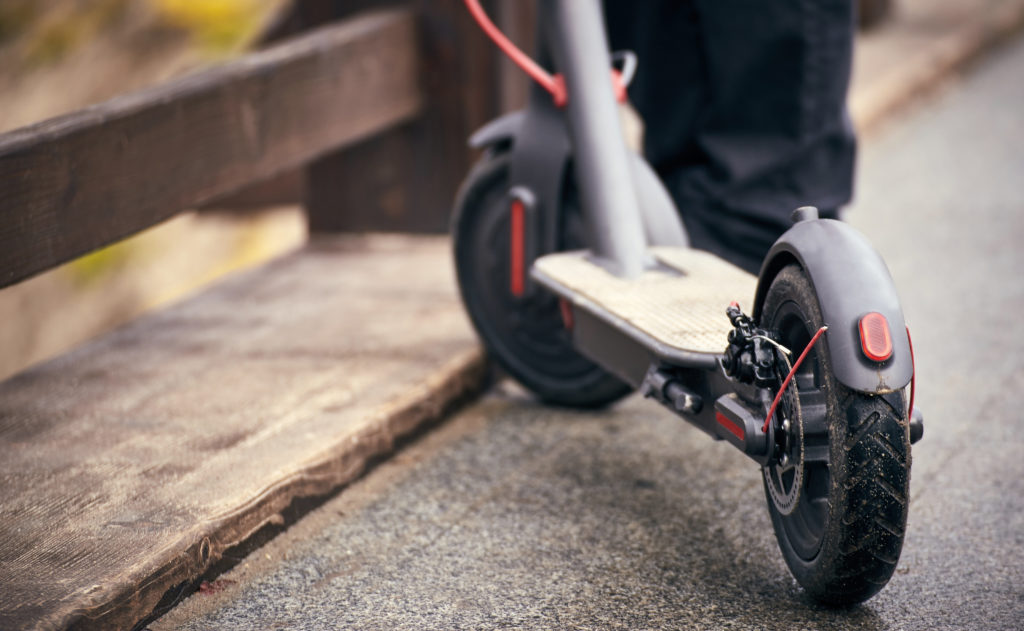
Within its first week as part of a 4-month long pilot program, Chicagoans took over 60,000 rides on the city’s new e-scooters throughout various neighborhoods of city. Since its unveiling, there has already been a large number of complaints regarding the scooters. The city’s Department of Business Affairs and Consumer Protection (BACP) alone has received 45 complaints since the program first began. With that being said, it’s not as if the complaints aren’t valid. Many in Chicago are seeing scooters piled up on sidewalks, forcing pedestrians to weave throughout foot traffic. In a city of three million people, issues such as these, which may seem small at the moment, exacerbate the problem. Based on the Chicago Department of Transportation’s “E-Scooter Do’s & Don’ts,” riders are instructed to “park scooters with care.” Unfortunately, with no clear oversight due to such a high volume of pedestrian, bike, and auto traffic already in the fold, scooters may just be too difficult to track and regulate.
As the media has been reporting throughout the United States regarding cities entering pilot programs, it has become clear Chicago is not alone. Unfortunately, some of the cities that have been experiencing major issues, accidents, and even fatalities, have far stricter rules than Chicago. The only mandate in Chicago is placed on the time of day a person may ride the scooters and specific areas where riding is banned. However, if you do decide to take the plunge and try out Chicago’s new e-scooter program, be smart about it and possibly take some training courses. Lime, one of the e-scooter providers for Chicago’s pilot program, is offering “First Ride Academy” courses, which aim to provide first-time riders with scooter safety information and tips on how to park scooters responsibly throughout the city. Details on the courses can be found below:
Location: West Palmer Square Chicago, IL 60647
Dates: Every Saturday, June 29 – July 27
Tickets: Click here
A growing trend
As overall interest in scooters has grown, there has clearly been a rise in the number of accidents and injuries, as expected. However, after seeing such a high number of fatalities increase as a result of these scooters, cities must ask if it is worth the risk. As reported at the beginning of June, “there are no comprehensive statistics available but a rough count by the Associated Press of media reports turned up at least 11 electric scooter rider deaths in the U.S. since the beginning of 2018. Nine were on rented scooters and two on ones the victim owned.” The issue with the scooters is not that they are available for residents to use, it’s the fact that they are not heavily regulated, and they are not essential for transportation needs. Cities like Chicago already have established public transportation and bike systems to allow for individuals to safely navigate the city. These pilot programs force cities to integrate an entirely new mode of transportation on a mass scale into an already developed daily practice of commuting for millions of people.
Injuries are frequent
Although it appears the fatalities and injuries sustained from these recent accidents are outliers, new reports are showing scooter injuries to be much more prevalent than we thought. Earlier this month, U.S. News reported a new study conducted by the American Journal of Otolaryngology finding an increase of head injuries from riding electric scooters across the United States. According to U.S. News, “between 2008 and 2017, nearly 32,000 injuries were estimated nationwide, according to a review of records in the Consumer Product Safety Commission’s National Electronic Injury Surveillance system. Accidents tripled from about 2,300 in 2008 to nearly 7,000 in 2017.” Not surprisingly, the most common injuries were concussions and brain bruising; however, this was largely due to the fact that 66% of the people injured failed to wear a helmet. What this information is telling us is that if cities fail to mandate certain safety equipment for riding scooters, the riders will not bother to wear helmets. Unfortunately, the injuries from these scooter crashes can be far more devastating. Though scooter riders in Chicago are limited to the bicycle lane, they can reach speeds of 15mph. Not requiring individuals to wear helmets under those circumstances is a risky proposition. That said, even if states or cities don’t require the use of safety equipment, we should all be doing ourselves a favor by putting a helmet on if we decide to join the scooter frenzy that’s now upon us.
Reader Interactions